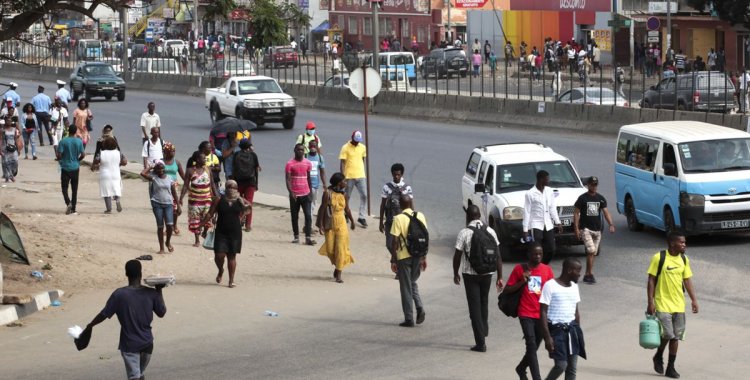"If we admit that the Angolan economy will not have significant productivity gains until 2027, an average annual GDP growth rate of 8 percent will be necessary so that in 2027 the unemployment rate can reach 18 percent", said this Monday the economist to Lusa.
With measures of "greater intensity of economic growth, we could reach 2027 with an unemployment rate around 11.5 percent", but all of this, he stressed, "are predictions, are estimates", alluding to data from the report CEIC economic 2021-2022.
"We must not forget that according to the last Quick Information Sheet of the Angolan INE (National Institute of Statistics) referring to the third quarter of 2022, the unemployment rate was at 30 percent and has been at 30 percent for a long time, there are times when it rises to 33 or 34 percent", he recalled.
The only source capable of creating jobs, said Alves da Rocha, is economic growth: "Without economic growth, you cannot create jobs, that is impossible, it is an impossible equation in the economy".
"Unless the creation of this job is an administrative job and it would be serious if it were a statistical job, that is, the falsification of employment statistics, without economic growth it is not possible", he maintained.
Speaking about Angola's economic growth prospects in 2023, the specialist pointed out the need to increase productivity to respond to the high unemployment rate, which mainly affects young people.
He argued that job creation cannot be dissociated from productivity gains, considering that if Angola intends to be a competitive economy in Africa and in the world "productivity gains are absolutely fundamental".
"Productivity gains means the rate of productivity growth and we have to know what productivity we are talking about, is an apparent gross labor productivity that is one of the most essential factors? Are we talking about a total productivity of production factors?" he questioned.
He also defended the need to value the informal economy, which absorbs 80 percent of the employed population in the country, having criticized what he calls "attacks" by the authorities on the informal economy.
"But it is good that everyone knows that the essential employment rate in Angola is informal employment, informal employment represents, according to INE data, 80 percent of total employment, that is, the Angolan economy is informal", he stressed.
"And this is what has alleviated social tensions, people look for the informal to survive, the informal economy is the most liberal economy that exists anywhere in the world", added the director general of the Center for Studies and Scientific Research (CEIC) from the Catholic University of Angola.
The Angolan informal economy brings together the largest number of jobs in the country because public policies, policies for economic growth, policies for job creation, policies for reducing the poverty rate "fail".
"Because the informal sector is just that, it is informal, it is far from the influence of public policies", stressed Alves da Rocha, classifying the intervention of the authorities in the informal sector of the economy as an "attack".
In November 2021, the Government launched the Informal Economy Reconversion Program (PREI) to formalize commercial activities in the country's informal markets and by May 2022, 200,000 operators had already registered.
Alves da Rocha, who said he was unaware of the results of the actions of the government and of the Observatory on the Informal Economy, supervised by the Ministry of Economy and Planning, while acknowledging "complaints" from private companies about unfair competition from informal operators.
Private companies "complain a lot about unfair competition from the informal economy, which is a sociological totality, part of the set of Angolan productive forces, what does it mean to have policies to destroy the informal economy? What is offered in exchange" he questioned.
"Informal economies exist, above all, to compensate for the non-functioning of the formal economy, that is why informality appears, if the formal market fails to create jobs, the informal appears to overcome this inability to create jobs", he insisted.
According to the Angolan economist, the unemployment rate among young people between 14 and 24 years old is between 54 and 55 percent, "they have to undertake to survive", and the informal market is the only way out.
"It is necessary to carry out a deep reflection on the attacks on the informal economy, I refer again, and there are studies that were carried out by Angolan teachers on the informal economy in Angola, I do not know who is at the heart of this Observatory", concluded the economist.







